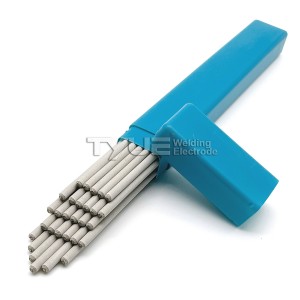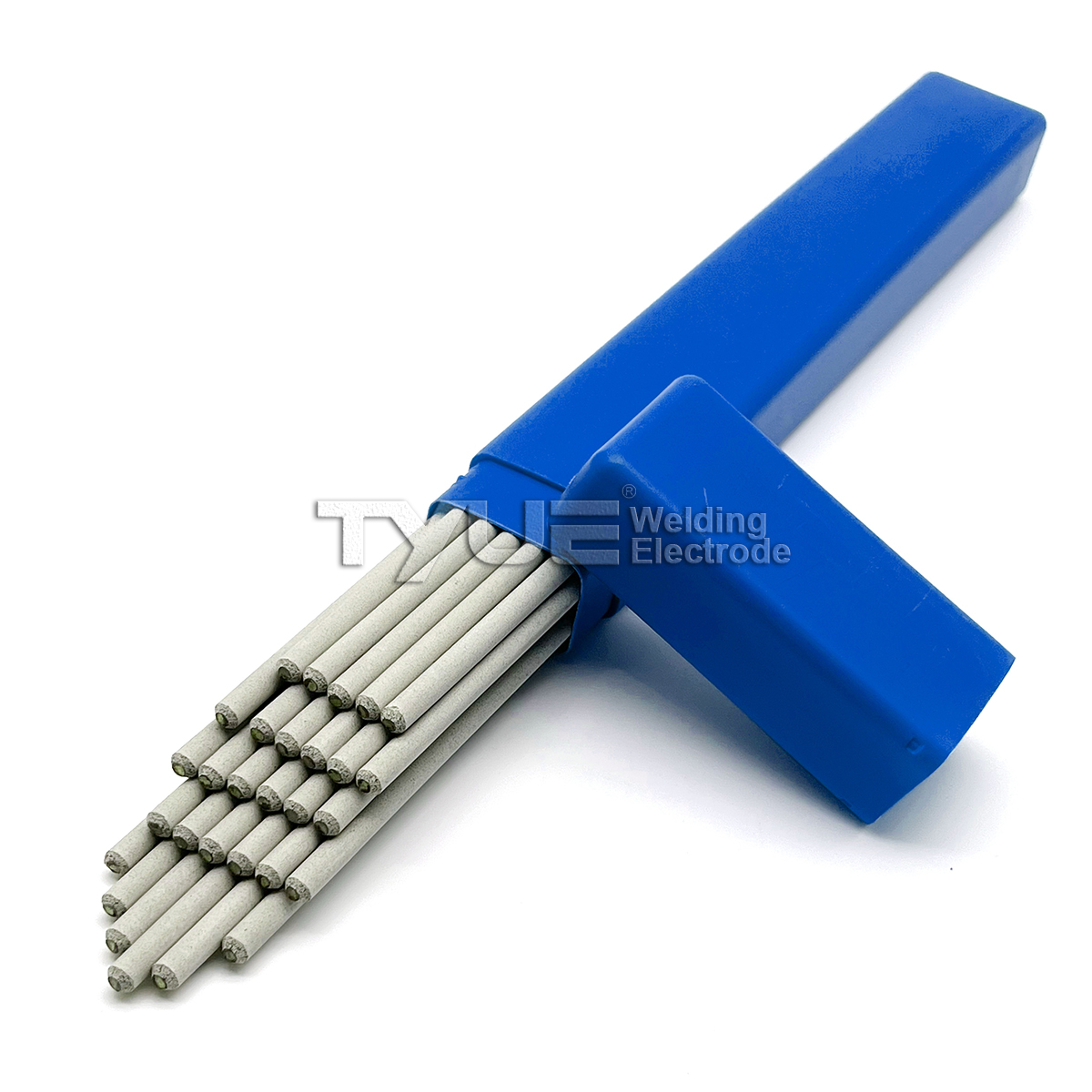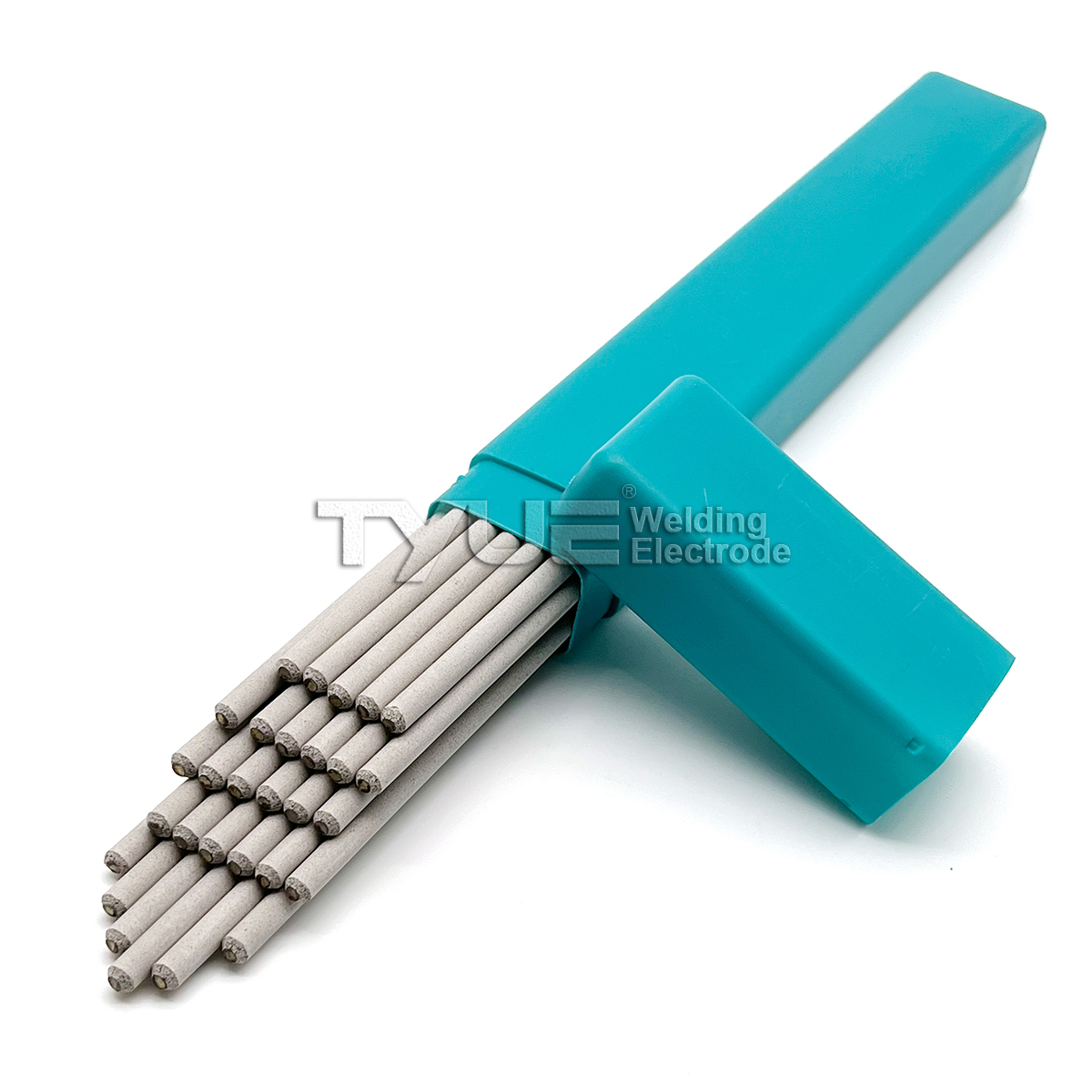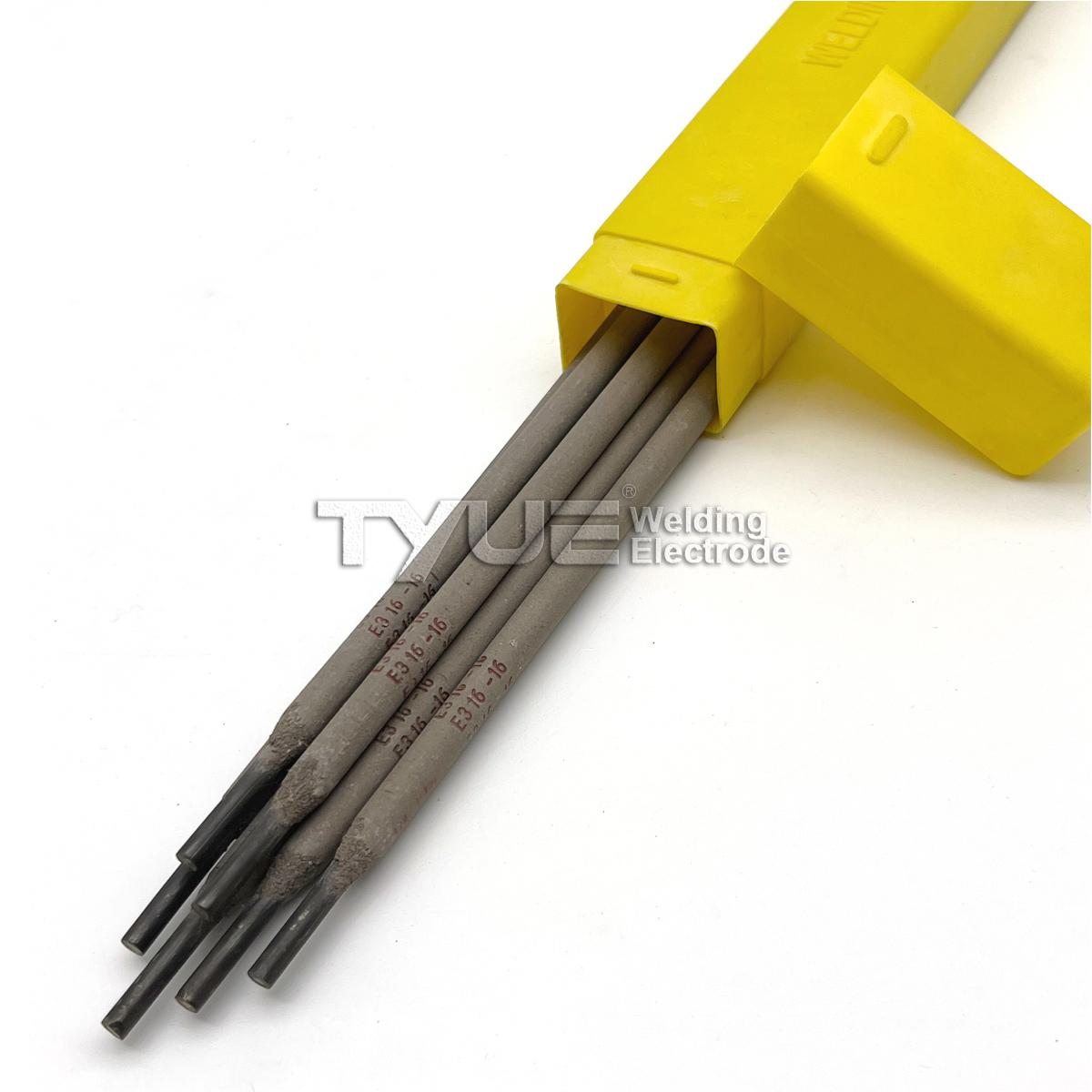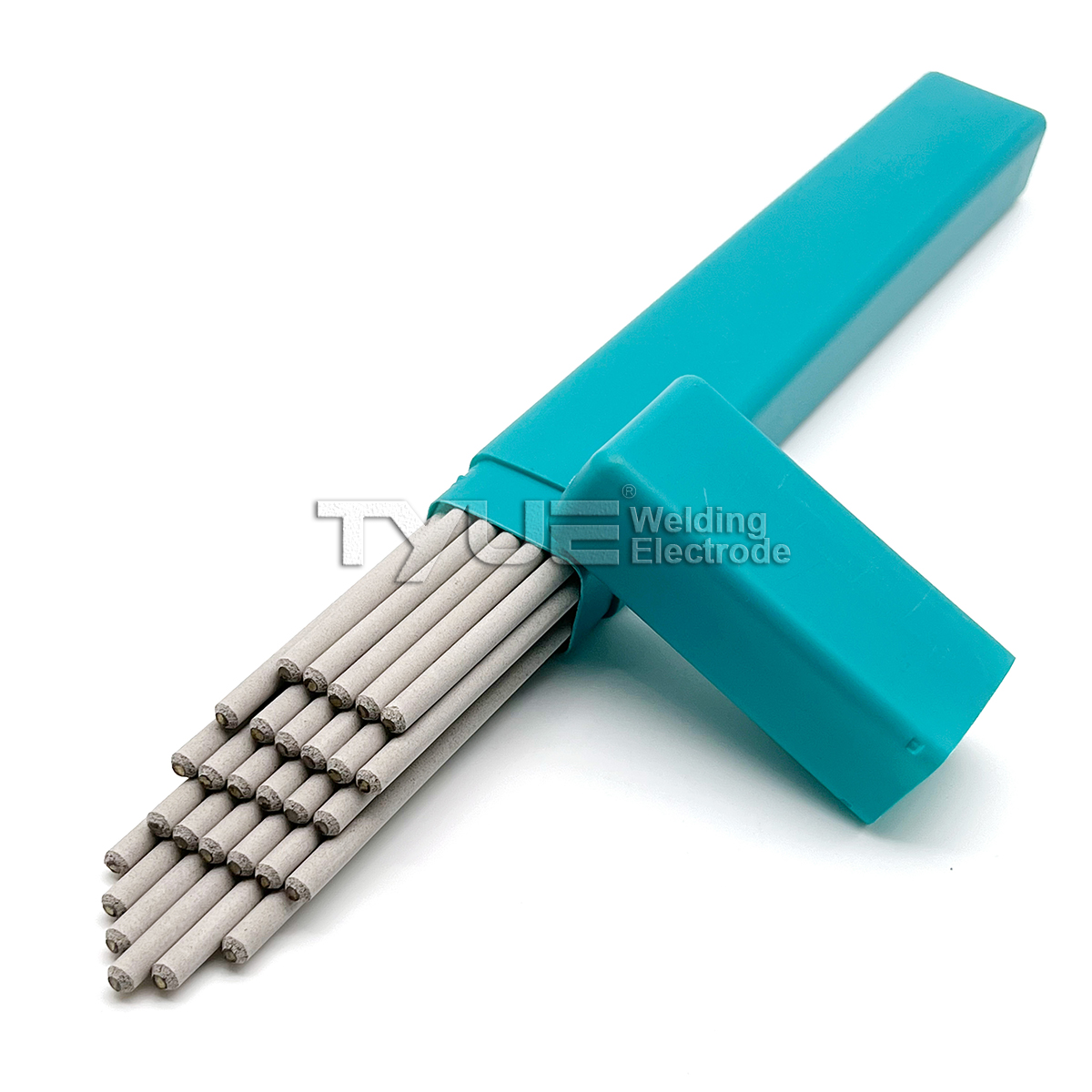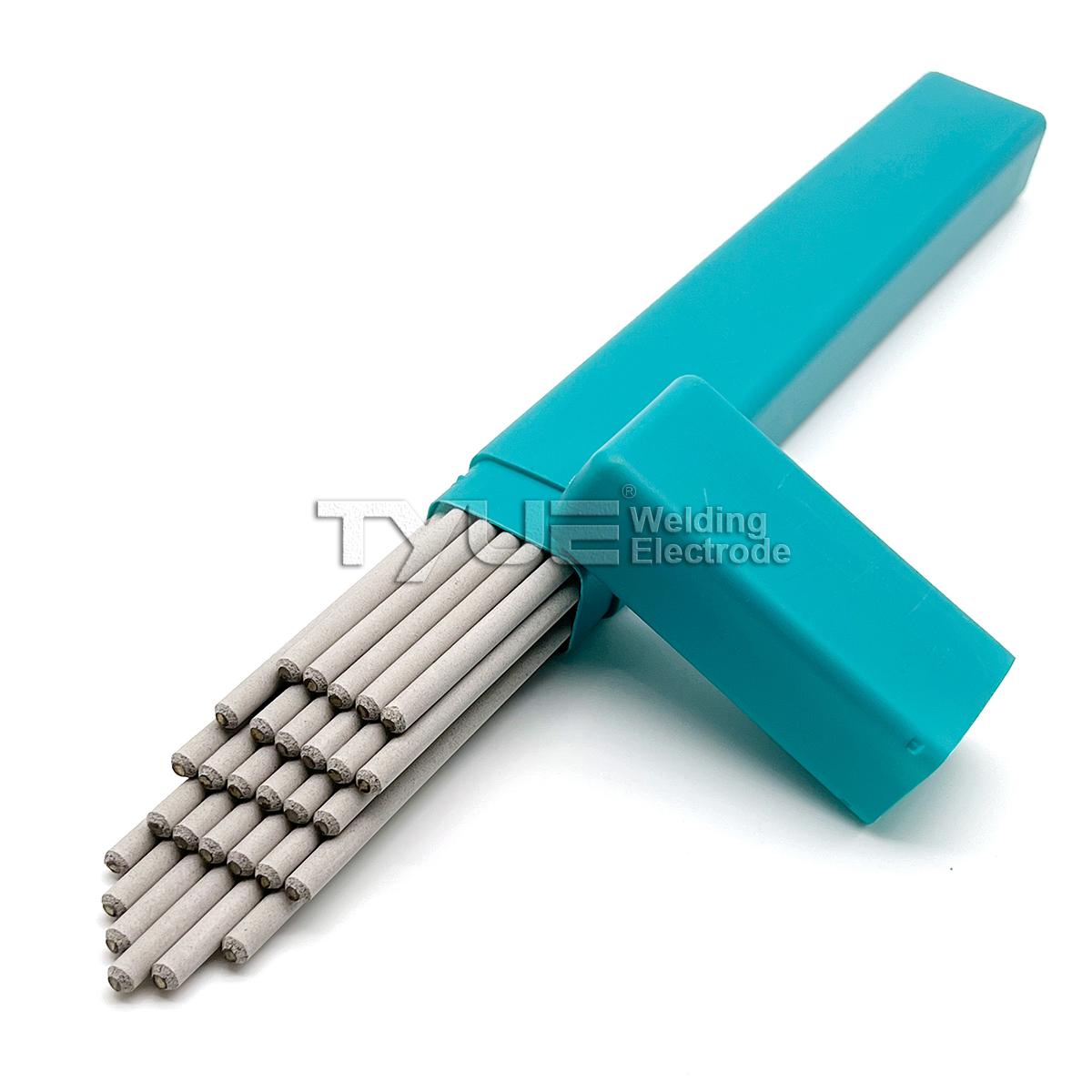Corresponding Standard
GB/T 983-2012 E410NiMo-15
AWS A5.4M-2012 E410NiMo-15
Equivalent Material: 1.4317 GX4CrNi13-4,1.4313 X3CrNiMo13-4,1.4407 GX5CrNiMo13-4,1.4414 GX4CrNiMo13-4,ACI Gr. CA6NM,UNS S41500
Description
E410NiMo-15 is a martensitic stainless steel welding electrode with low-hydrogen sodium coating, containing 11.0-12.5% Cr, 4.0-5.0% Ni, and 0.40-0.70% Mo. It is suitable for all-position shielded metal arc welding (SMAW) with stable arc, minimal spatter, and excellent slag detachability . The deposited metal offers high strength, good corrosion resistance, and cracking resistance. Preheating is recommended for thick workpieces, and post-weld heat treatment (PWHT) at 580~620℃ (1-2 hours, air cooling, AC) is required .
Application
Ideal for welding ASTM CA6NM cast steel, 13%Cr-4%Ni series steels (e.g., Cr13Ni4Mo,Cr13Ni5Mo), and similar martensitic stainless steels . Typical applications include repair welding of hydropower turbine runners, valve bodies, high-pressure pipelines, and surfacing of cavitation-worn components. Also used for hardfacing repair of wear-resistant parts like crusher rolls and pump casings .
Chemical Composition of Weld Metal(%)
| Element | C | Mn | Si | P | S | Cr | Ni | Mo | Cu |
| Requirement | ≤0.06 | ≤1.0 | ≤0.90 | ≤0.04 | ≤0.03 | 11.0-12.5 | 4.0-5.0 | 0.40-0.70 | ≤0.75 |
| Test Result | 0.029 | 0.7 | 0.32 | 0.028 | 0.01 | 12.26 | 4.50 | 0.55 | 0.01 |
Mechanical Properties of Deposited Metal
| Test Name | Tensile Strength (Mpa) | Elongation% | X-Ray | Impact Test,(+20℃)J | Hardness HB | Diffusible Hydrogen(ml/100g) |
| Requirment | ≥760 | ≥15 | Grade I | – | – | ≤5 |
| Test Result | 845 | 19 | Grade I | 60-90 | 250-310 | ≤5 |
Recommended Welding Parameters
Power Source: DC Reserve (DC-)
Recommended Current
| Rod Diameter(mm) | 3.2 | 4.0 | 5.0 |
| Welding Current(A) | 80-120 | 120-160 | 150-190 |
Notice:
1.Bake the electrode at 300℃ for hour before use to remove moisture .
2.Clean rust, oil, and moisture from the base metal surface; use short arc operation for narrow weld beads .
3.PWHT should be performed immediately after welding to avoid embrittlement .

